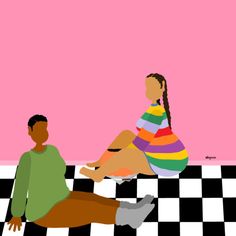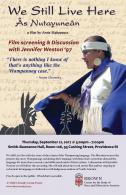2020-2021 Annual Report
2019-2020 Annual Report
2018-2019 Annual Report
2017-2018 Annual Report
George Lipsitz, "Decorating the Way to Other Worlds: Why Race and Space Matter Now"

Pembroke Hall, Room 305, 172 Meeting Street, Providence RI 02912
In CSREA's inaugural Third Rail Series Lecture, George Lipsitz described how in the wake of imposed austerity and state organized abandonment of communities of color, urban activists and artists are building capacity for popular democracy through site specific interventions organized around art-based community making.
Fall Welcome Reception and Art Exhibit Opening: "The Body As Site Of"

CSREA, Lippitt House, 96 Waterman Street
Welcome back! Please join us to celebrate a new year and the opening of our 2017-2018 exhibit, "The Body As Site Of." This exhibition features artwork by four contemporary artists of color who engage in reflection on the complexity of identity, sometimes pushing back on misrepresentations, including stereotypes and cultural appropriation, other times presenting alternatives: Akujixxv, Devyn Galindo, Panteha Abareshi, and Carolina Hicks.
"We Still Live Here - Âs Nutayuneân" Film Screening and Discussion with Jennifer Weston

Smith-Buonanno, Room 106
We Still Live Here, a documentary by award-winning filmmaker Anne Makepeace, tells the story of the return of the Wampanoag language. The film interweaves the present-day story Wampanoags reclaiming their language with historical events that silenced the language for more than a century and obliterated much of their culture – epidemics, missionary pressures, land loss, and the indenture of Native children.
2016-17 Annual Report
Critical Migrations and Refugee Studies Series: Cathy Schlund-Vials, "Prosthetic Ecologies"

Smith-Buonanno, Room 106
This talk examines the role disability plays in the making of refugee subjects; such subjects, as this presentation maintains, are necessarily situated in catastrophic environs formed in the troubling aftermaths of war, natural disaster, and economic crisis. To access the various man-made mechanisms responsible for bringing these disabled subjects "into being," this talk strategically utilizes the following schema: "prosthetic ecologies." "Prosthetic ecologies" operates as a flexible and generative analytic upon which to syncretically chart longue durée histories of state-sanctioned violence, state-authorized violation, and internationally-supported contravention during the Cold War era.
